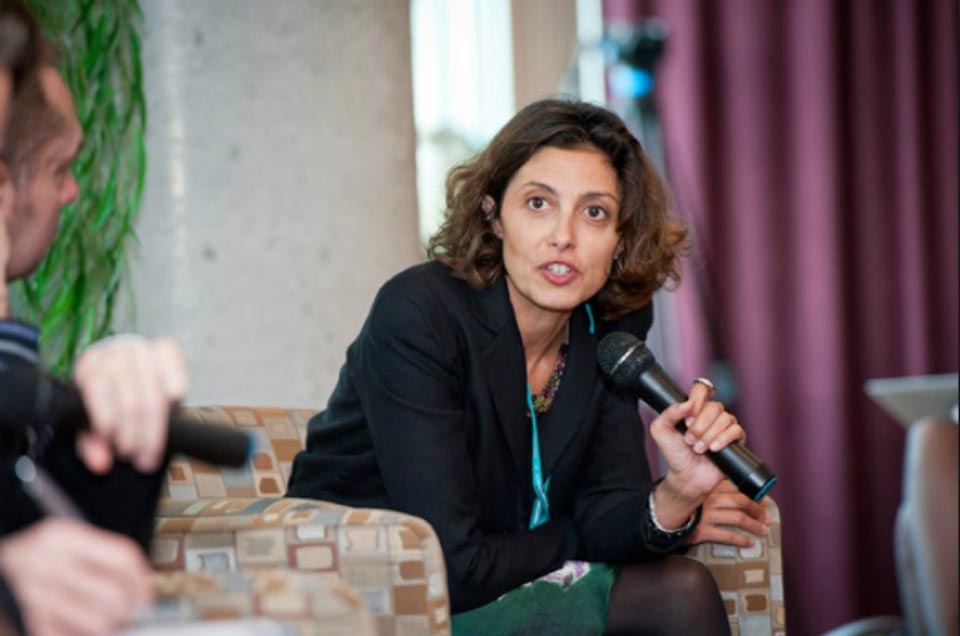
The Georgia Defense and Security Conference (GDSC) is being held in Batumi, Adjara region, on November 6-7.
High-ranking Georgian and foreign politicians, military experts and representatives of civil society, mass media and academic circles are taking part in the conference. One of these foreign politicians includes the Head of NATO Liaison Office Rosaria Puglisi.
“NATO does not consider a temporary suspension of Article 5 over the de facto occupied territories of Abkhazia and Tskhinvali Region/South Ossetia,”- this comment was made by the Head of NATO Liaison Office Rosaria Puglisi, at Georgia Defense and Security Conference (GDSC) in Batumi.
“Georgia is a sovereign country and has the right to choose how to set up its own security. These principles are included in the Helsinki Accords. The document was signed by Russia.
We, who represent NATO, believe that any country has the right to decide which “club” to belong to and which to avoid. This, of course, also applies to Georgia. If we look at the latest documents and statements of NATO, we see that The Membership Action Plan (MAP) is part of the integration process.
NATO and Georgia have been working on this for many years. We are doing a lot to strengthen Georgia’s security and Defense Forces. Hence, I think we will achieve success,”- Rosaria Puglisi said.
As Rosaria Puglisi stated the main challenge for Georgia’s security is the placement of Russian soldiers on the territory of the country.
“The fact that Georgia’s two regions remains controlled and occupied by foreign forces and that the process of “borderization’ has a huge impact on the well-being of the people living at or near the Administrative Boundary Lines. This is a very serious security challenge for Georgia.
On the other hand, Georgia does a lot. First of all, everyone understands that this situation should be resolved solely on the basis of international law, through dialogue, and diplomatically.
Georgia has worked hard for this, to implement a strategy to support Georgian citizens living on the other side of the Administrative Boundary Lines. Everyone supports what Georgia is doing for a better future.At the same time, NATO is helping Georgia to become stronger,”- the Head of NATO Liaison Office Rosaria Puglisi stated.
The Head of NATO Liaison Office added that a very interesting discussion is being held at Georgia Defense and Security Conference (GDSC) in Batumi.
“It is certainly fair for the Georgian civil society to think about how to speed up the process of joining the alliance.
I would like to point out that NATO does not consider a temporary suspension of Article 5 over the de facto occupied territories of Abkhazia and Tskhinvali Region/South Ossetia.
We respect and appreciate Georgia’s territorial integrity and sovereignty. With regard to the joining NATO, we imply whole Georgia, including Abkhazia and South Ossetia,“- Rosaria Puglisi said at the GDSC in Batumi.
Since its launch, the GDSC has become the venue for posting the right questions and seeking the right answers for Georgia, for the Black Sea region and for the European and Euro-Atlantic Security. As Ministry of Defence of Georgia says, for the year 2019 suggested plenary sessions are as follows:
Rationalizing Evolving Security Environment in the Black Sea Region – Russia’s increased military build-up in the Black Sea region has resulted in the decision of the Alliance to bolster NATO’s presence in the area. NATO has taken steps to strengthen the security of allies and partners in the region, thus Black Sea region’s political, military and economic significance, as well as its security and stability has once again re-emerged.
Georgia on the Right Track- for the NATO and EU Membership – The conscious determination of the vast majority of Georgians to join the European and Euro-Atlantic family continues to result in the highest level of popular support towards NATO and the European Union in Georgia. Are the Allies and the member countries today encouraging and fairly treating those who – despite external pressure – firmly continue to uphold values of freedom and democracy? Are we sending a clear message to Russia, who tries to create territorial divisions in Europe and resort to military force in order to restrict the freedom of nations to pursue their own future?
Georgia’s Strategic Readiness: From Words to Action – On the way to the NATO and EU membership, Georgia has developed a new approach which combines strategic readiness with principles that develop sustainable territorial defence and the required defence capabilities that are compatible with NATO standards, which will ensure swift integration of Georgia into the Alliance once the membership invitation is extended.
Hybrid Tactics and Hybrid Threats – Walking a tightrope – The use of hybrid strategies, development of information operations and cyber capabilities have enabled Russia to direct its efforts towards shaping political narratives in many countries. Growing cyber and information-operations capabilities along with an increased number of Russian “cyber warriors” represents a dangerous combination, enabling the Kremlin to interfere and influence in other countries affairs. Moscow’s deliberate and covert actions are directed towards challenging the European and Euro-Atlantic security through undermining pro-Western democracies and provoking wars. Living through the disinformation era-how to counterstrike? Deter or prevent (or to regulate at all)? Have we figured it out? – Ministry of Defence of Georgia stated.
By Marika Kartozia





